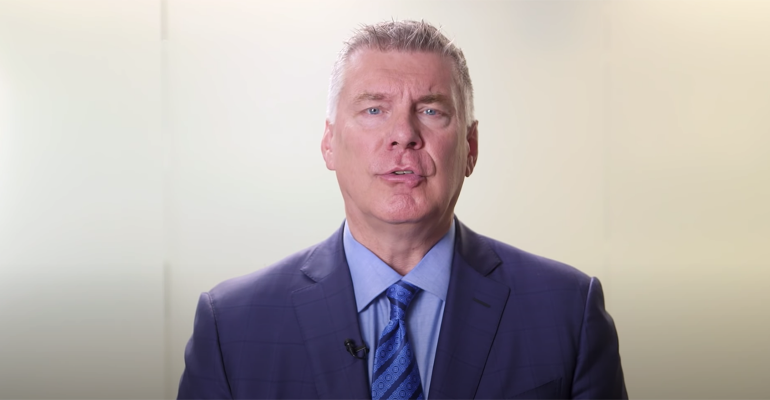Last July, the CFP Board announced that it was no longer enough for Certified Financial Planners to self-disclose regulatory marks and that it was creating a new task force dedicated to updating its enforcement procedures; the moves were in response to a Wall Street Journal article that unearthed instances of thousands of CFPs who had failed to disclose customer, criminal or regulatory incidents to the board.
Today, as the June 30 implementation date for the organization’s new Code of Ethics and Standards of Conduct approaches, the CFP Board said it has taken a number of steps to further tighten enforcement of the Code and Standards.
“We are decisively moving away from CFP Board’s historic reliance on self-disclosure by CFP professionals,” said Kevin Keller, CEO of the CFP Board. “We’re making a concerted effort to provide the public with increased transparency about disciplinary history and other disclosure information related to CFP professionals.”
For one, the board of directors has approved a one-time expenditure of $5 million to conduct updated background checks for all 87,000 CFP certificants, the result of which has already led to investigations related to 1,240 CFPs, or 1.4% of the CFP pool, where the organization detected misconduct. Nearly 40% of those investigations are for non-consumer-related actions, such as tax liens or other civil matters, Keller said.
The misconduct uncovered will be reviewed on a case-by-case basis and not all matters will require adjudication, he said. For any case that concludes with the issuance of a public sanction, it will appear in a press release and in the CFP professional’s disciplinary history on CFP Board’s public-facing website. They've notified a significant number of those under investigation, and adjudications will go out by the end of 2021.
That $5 million is expected to be used across 2020 and 2021 for the purposes of those investigations. The organization currently has 20 additional temporary attorneys and administrative support staff to working on these cases, but it has also committed to an additional three full-time employees, Keller said.
The organization couldn’t say whether the new enforcement efforts would lead to an increase in annual fees paid by CFP certificants. Jack Brod, the 2020 chair of CFP Board’s board of directors, said the organization was in the middle of a “strategic refresh.”
“Part of that evaluation includes a comprehensive look at the priorities and all the programs appropriate and necessary for a professional body like CFP Board,” Brod said. “That process also includes an evaluation of the spending priorities, and the resources of the organization. So until that process is complete, it would be premature to speculate about fees and whether ongoing costs related to building out the enforcement program will or will not have any impact on fees.”
In addition to the background checks, the CFP Board has also added consumer access to FINRA’s BrokerCheck and the SEC’s IAPD information to the listings of CFP professionals on its website. They’ve also developed a process to review the BrokerCheck and IAPD databases on a regular basis to identify new disclosure information on CFP professionals. The organization also created a database of state regulatory actions related to securities and insurance licensing for use when evaluating candidates for CFP certification, including a process for reviewing state regulatory websites on a regular basis to obtain recently reported information. They’ll also review a national legal database to identify criminal records, tax lien filings, bankruptcy filings and civil lawsuit records.
The group expanded the disclosure obligations, and in the new Code and Standards, it has reduced the time CFPs have to alert the board and disclose incidents from as much as two years to 30 days.
Further, CFPs will now be required to fill out an ethics attestation document on an annual basis, instead of biannually. The attestation questions have also been updated, and that will be implemented later this year.
The group has also updated the process for sharing information about a CFP with grievants who raise an issue about that individual.
There are even more reforms, including defining in written policies the specific enforcement outcomes that the board of directors expects CFP Board staff to achieve; the board will monitor the CEO’s (Keller’s) performance against those expectations.
The CFP Board will also crack down on failing to self-report information to the organization.
“CFP Board will form a commission in 2020 to begin reviewing and developing recommendations for revisions to the existing what we refer to as Fitness Standards and Sanction Guidelines,” Brod said. “And this will be part of the commission’s mandate.”
The board of directors is also in a comprehensive governance review that will address a number of recommendations from the enforcement task force, using the help from a global consulting firm. The board will also review the organization’s Enterprise Risk Management system, with help from an ERM consultant.
“It sounds like they’re putting a lot of teeth into this, but from a pure implementation point of view, it’s just going to be a bunch of form-filling,” said Tim Welsh, a CFP and president of consulting firm Nexus Strategy. “Sure, you can have policies and procedures and you can have bureaucratic things put in place, but who’s going to actually come in and say, ‘Yours is no good.’ How’s that going to happen at that scale—87,000? Right now, other CFPs tell on other CFPs.
“It has a basis in reality, but the implementation is definitely way into the theoretical.”





